Bowel cancer 'breakthrough' at Queen's University
- Published
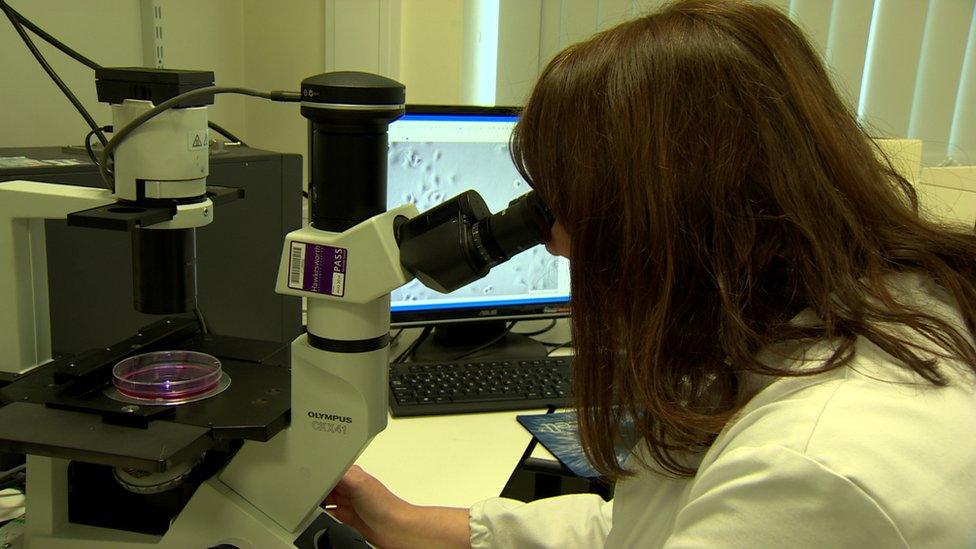
Bowel cancer is difficult to treat with all patients currently offered chemotherapy
New research led by scientists at Queen's University Belfast is being described as a "breakthrough" discovery in the fight against bowel cancer.
Bowel cancer is the fourth most commonly diagnosed cancer in the UK and the second leading cause of cancer death.
It's a difficult cancer for clinicians to treat and currently all patients are offered chemotherapy.
While chemotherapy may work for some, for other patients it has no effect.
Those patients may also suffer debilitating side effects.
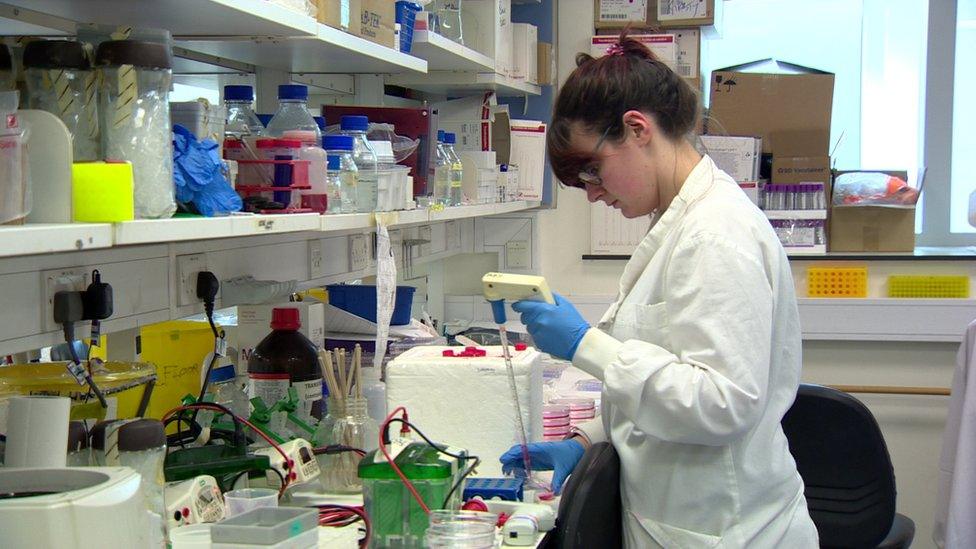
Scientists have uncovered different types of bowel cancer that could lead to the development of different types of treatment
Now, researchers at Queen's, in collaboration with the Universities of Oxford and Leeds, have made a big advance in the future treatment of the disease.
They've analysed tissue samples to uncover different types of bowel cancer.
This is important because it means treatments can be developed to improve prognosis and enable treatment strategies that are specifically tailored to each patient.
Professor Mark Lawler is the chair in Translational Genomics at the Centre for Cancer Research and Cell Biology at Queen's. He described the research as "exciting."
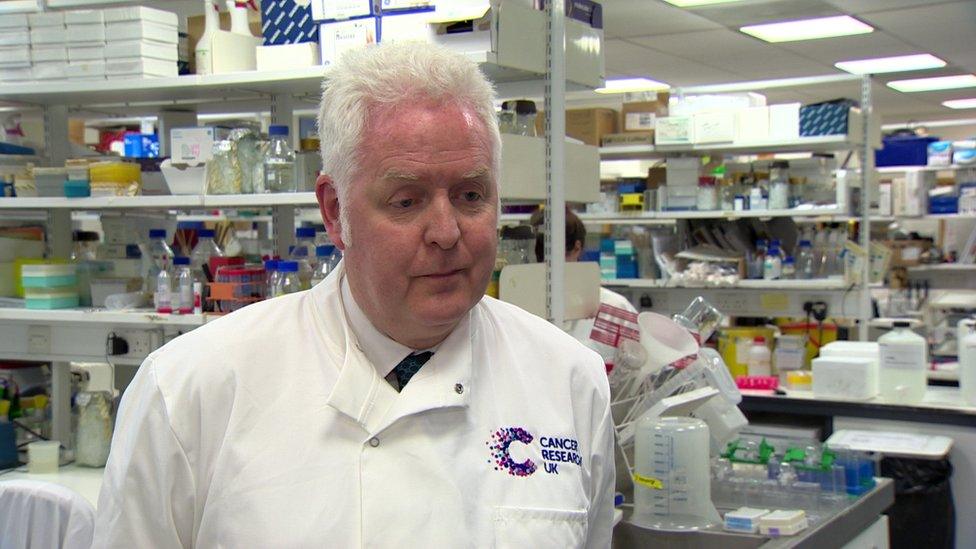
Professor Mark Lawler said the developments could lead to "personalised therapy"
"What we do is take cells from the patient and subject them to molecular tests. That allows us to get essentially a fingerprint of what the cancer cell is doing.
"That fingerprint tells us what's gone wrong and starts to give us clues about how we can identify it in patients, for example, with a very simple blood test.
"It can also start to tell us how we can use that information to treat this disease."
He added: "Imagine having a situation where you don't have to give the patient chemotherapy, where you give them a personalised therapy - individualised to them."
'Massive step forward'
One patient who could have benefited from such an approach is bowel cancer survivor Ed Goodall.
The north Belfast man knows just how physically and mentally gruelling treatments like chemotherapy can be.
"If we could see a future -- or even in the medium term -- where, if you were diagnosed with bowel cancer, all you had to face was surgery or the excision of the tumour then that's a massive step forward.
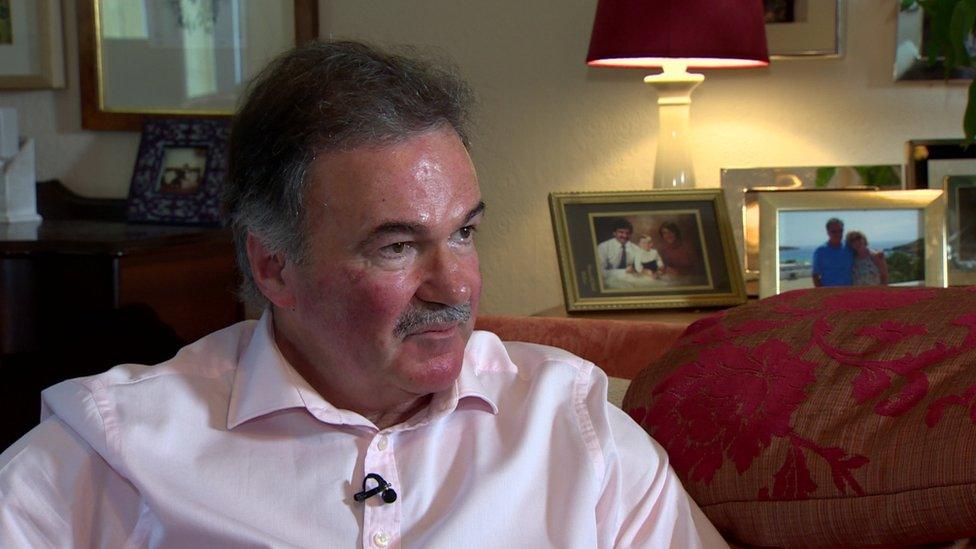
Ed Goodall, a survivor of bowel cancer, said the research could be a "massive step forward"
"At the moment, it's a step in the dark - a tumour is a tumour and you are offered radio or chemotherapy.
"It may be necessary, but it damages normal cells, you are horribly sick, your hair falls out, it is almost medieval.
"This would be an entirely new approach to the problem."
Patient experience
He used his experience as a cancer survivor, and role with the NI Cancer Research Consumer Forum, to work with the scientists offering them point of view of the patient.
He explained that he would give talks to researchers and tell them just what it was like to fear cancer, to receive a diagnosis and to go through treatment.
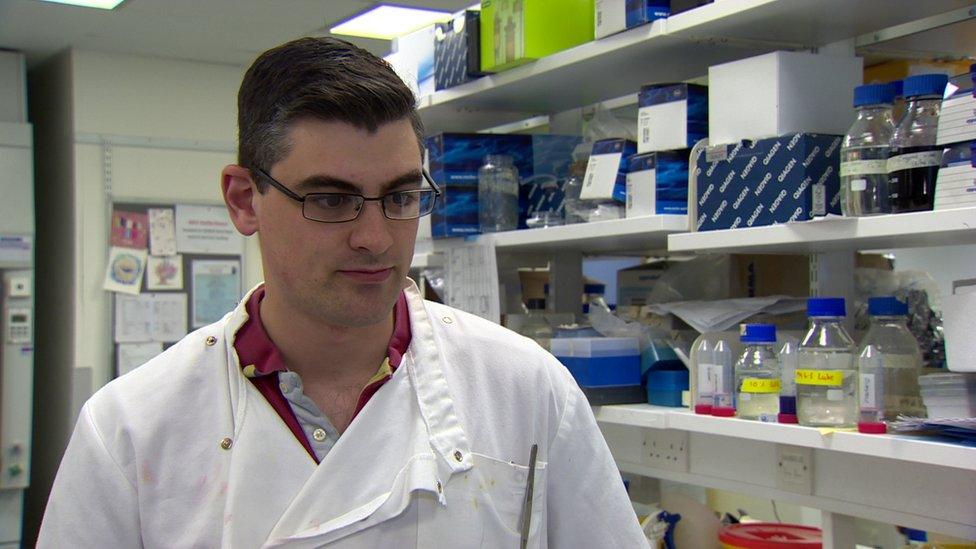
Luke Humphries said researchers were driven by the hope that they can change lives
"The researcher has to be reminded that's there's a person at the end of all this - but science is listening."
Queen's PHD student Luke Humphreys said he is aware of the impact his work could have.
"The work I'm doing today will hopefully change someone's life in ten years time so that's a driver for us."
Further information on the study has been published in the academic journal Nature Communications.